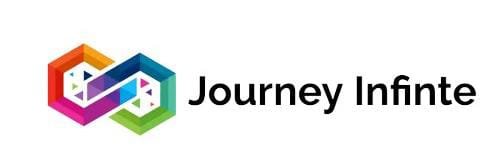Do you use credit cards for making payments? Are you aware of what MCC (merchant category code) means? If you are not, then you must understand it as it plays a key role in determining what fee or MDR (merchant discount rates) you pay and the rewards points that you earn from your credit card transactions.
A wrong MCC categorization can result in higher MDR and you would also end up earning lower reward points. Here are a few things you should know about MCC to help manage your credit card transactions.
What is MCC, its impact on MDR and reward points?
MCC is a four-digit number used by credit card companies to streamline the products and services offered by businesses. These codes have a great importance for both consumers and business owners as they ultimately influence the MDR.
The MCC determines the MDR percentage in a transaction. A lower MDR is charged for transactions in certain MCCs, which are considered low-risk businesses. For instance, grocery and utilities are routine, low-risk categories that attract a lower MDR of 1%-1.5% (depending on the bank and the payment gateway).
The MCC also determines whether businesses can charge convenience fees for customers. Fuel stations are usually allowed to pass the surcharge on to their customers.
Most credit and debit card issuing banks provide reward points and cashbacks on certain transactions, which is directly linked to the MCC. Cashbacks and reward points are typically available for groceries, utility bills, apparels, restaurant, supermarkets, telecom and entertainment categories.
Transactions in any of these categories earn you reward and cashback points. Banks typically offer up to 5% cashback on online shopping and 1% on utility bill payments. Do note that certain payments such as education fee and house rent do not earn any reward points. To put it simply, banks and credit cards offer reward points to encourage customers to spend money in low-risk consumption categories.
Credit card issuers assess the risks based on the business type, which is then directly linked to MCC. High-risk businesses incur higher MDR and payment approval rates. Higher MDR usually applies to businesses with high potential for fraud.
What if the business has a wrong MCC?
Payment services providers such as Master Card and Visa assign MCCs to merchants based on their business categories. But in rare cases, merchants are assigned the wrong MCC. This occurs due to several reasons including wrong entries made by payment gateway providers and merchants providing wrong information about their business to get a lower MDR.
A wrong MCC will affect both the consumer and the merchant. Wrong MCC is a real problem and credit card holders stand to lose a lot in the form of higher MDR and lose big time on reward points in such instances.
Recently, a customer who used his credit card to purchase a car in Gujarat found to his shock that the transaction was billed as a fuel purchase. As a result, he was levied a further 1.1% on the transaction as fuel surcharge. When he complained to the bank, it informed him that the merchant was categorised as a fuel station and that is why a surcharge was applied. He shared his experience on social media.
If the MCC comes under the fuel category, the merchant does not have to pay MDR as it is charged to the customer. Banks and credit card companies typically reverse the fuel surcharge levied by petrol pumps.
To avoid such embarrassment, it is better to do a small transaction (say ₹100) to check the MCC, according to persons who track credit cards closely. After making sure that it is not a random or excluded MCC, the customer can proceed with the actual transaction, they say.
In case of a wrong MCC, the customer should first approach the bank that issued the card. If she/he finds the response unsatisfactory, a complaint can be registered with the banking ombudsman.
How do you know your MCC
The National Payments Corporation of India (NPCI) has classified MCCs as high transacting, medium transacting and others based on approved RuPay transaction volumes on PoS (Point of Sale) and e-commerce websites. The top-10 MCCs are classified as high-transacting, the next 10 medium-transacting and the rest have been grouped under others. Here is the link to know more about MCC.
Allirajan M is a journalist with over two decades of experience. He has worked with several leading media organisations in the country and has been writing on mutual funds for nearly 16 years.
Catch all the Budget News ,Business News , Money news , Breaking News Events and Latest News Updates on Live Mint. Download The Mint News App to get Daily Market Updates.
MoreLess

